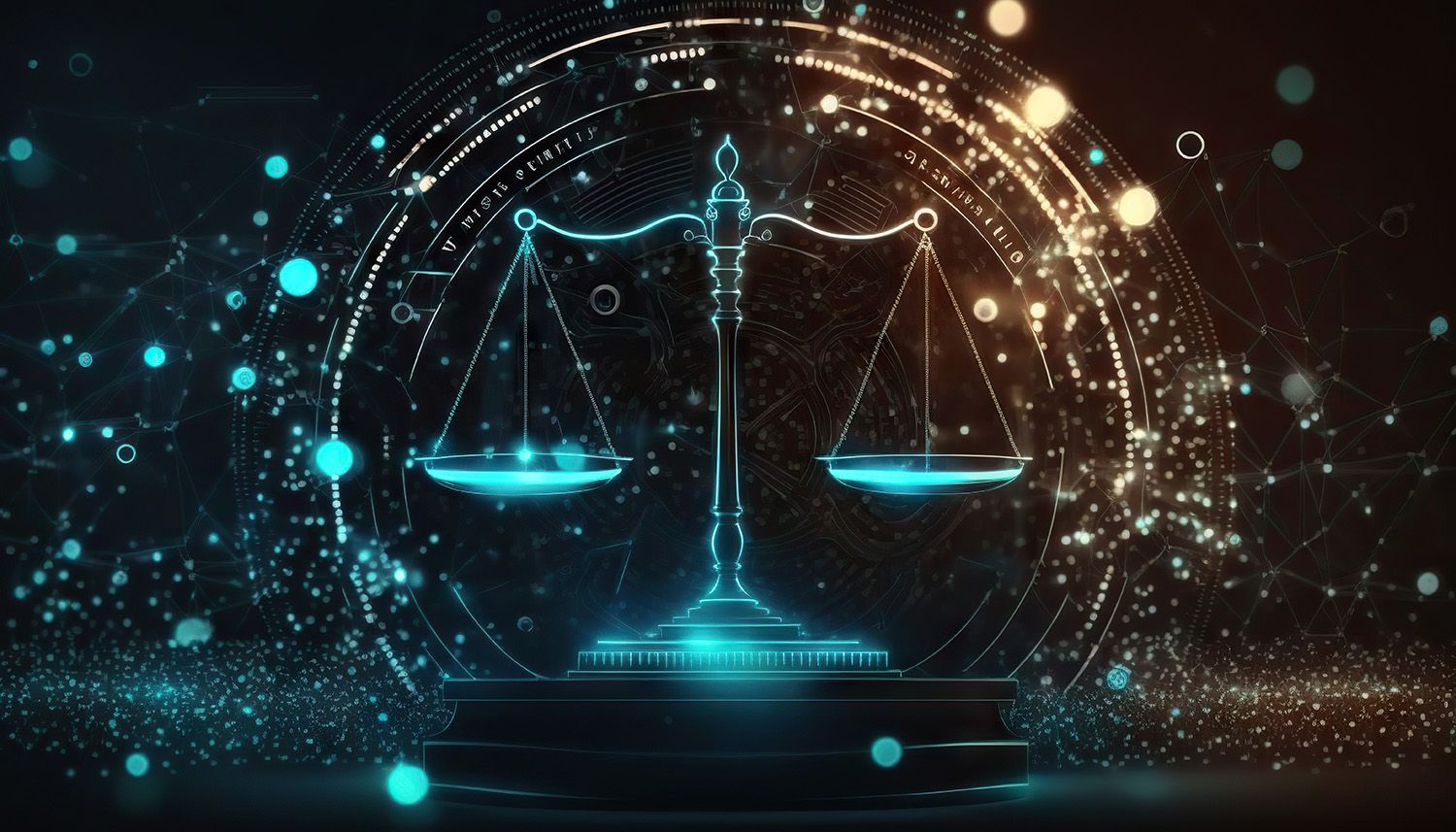EDITED BY:
Professor Michael H. Hoeflich, PhD, Editor-in-Chief
Carrie E. Parker, Legal Editor
Luzianne Stafford, Design & Publishing Editor
PUBLISHED BY: Joseph, Hollander & Craft LLC
PUBLICATION DATE: May 30, 2025
READ & DOWNLOAD FULL-TEXT PDF OF LEMR Vol. 6, No. 5
FEATURE ARTICLE: The Indifferent Client
A lawyer serves as a fiduciary agent for her client. This relationship is not one of equality. The vast majority of the obligations and responsibilities rest with the lawyer. The one-sidedness of the relationship is obvious in many of the rules and comments in the Rules of Professional Conduct. For instance, a client may dismiss a lawyer at any time for any reason and may do so without any need for justification. A lawyer, on the other hand, may not freely withdraw, but instead, must ensure that a withdrawal complies with the often-restrictive requirements of Rule 1.16. Pursuant to Rule 1.2 (a) (the so-called “means and ends rule”), a client has absolute decision-making power over critical decisions which go to the essence of the lawyer-client relationship such as settlement or pleas. Rule 1.3 requires candor to the client but not vice versa. Similarly, Rule 1.4 requires a lawyer to communicate with the client, but does not require the same of the client. Indeed, the Rules of Professional Conduct are very clearly written for the protection of clients, not of lawyers.
. . .
NEW AUTHORITY: Judicial Comments
On March 11, 2025, the Judicial Ethics Committee of Maryland issued an interesting, and politically relevant, formal opinion regarding whether judges may properly offer guidance regarding Executive Orders outside the context of active litigation over which they preside.
The Maryland State Bar Association had issued a call for its members to take on the task of assisting others in understanding Executive Orders issued by President Trump at the beginning of his second term in office:
In service of its focus on supporting and educating members, MSBA has launched a resource page for Maryland attorneys in light of the many White House Executive Orders that have far-reaching legal implications and will change how practitioners do their work and advise their clients. As part of this important effort, [the] MSBA President . . . has instructed MSBA’s substantive law sections to review these Executive Orders and develop articles, webinars, roundtables, and other resources as necessary to ensure members are informed of the Executive Orders’ legal impact.
A Maryland judge active in the MSBA requested an opinion as to whether he might answer the call and provide this type of help. As summarized by the Committee:
Requestor inquires whether it is permissible for Requestor to attend section council sessions focused on these “White House Executive Actions,” during which Requestor’s section will review and discuss the many presidential Executive Orders that have been signed since January 20, 2025. The stated purpose of the meetings is to “provide [MSBA] members with practical information and legal analysis of the [presidential orders] so they can be informed, adjust their work, and properly advise their clients in light of these actions.”
The Judicial Ethics Committee looked at a number of the provisions of the Maryland Code of Judicial Conduct and all the possible provisions that might apply to a judge doing such work for the bar association.
It expressed deep concern that providing the advice requested by the MSBA would constitute the “practice of law” in Maryland and thus be a prohibited activity under the Code:
Here, as already mentioned, the purpose of the MSBA effort is to assist members by providing legal analysis vis-à-vis the White House Executive Orders so that the members “can be informed, adjust their work, and properly advise their clients.” These are complex matters that require legal knowledge and skill. Although judges appropriately participate in general educational activities through the MSBA and other bar organizations, in our view, for the current and recalled/senior judges who serve on these MSBA committees, the evaluation and analysis of White House Executive Orders is so specific that it would constitute the practice of law and, moreover, can be seen as indirectly advising the members’ clients themselves. This type of activity would run afoul of Rule 18-103.10.
It is far from certain that other states would follow the Maryland opinion in this respect. The characterization of the proposed activity as “indirectly advising members’ clients themselves” seems arguable.
The opinion also expresses deep concern as to whether judges should provide analysis of White House executive orders because doing so might constitute engaging in “partisan political activities”:
In addition, given the nature of the task – to provide legal analysis regarding White House Executive Orders – participation could be seen as engaging in “partisan political activity,” which is prohibited by Rule 18-104.2(a). We are not suggesting that any MSBA member judges would engage in “partisan political activity.” The concern is that their participation in the anticipated meetings might reasonably raise a question of impropriety, contrary to Rule 18-101.2. Certainly, the Committee acknowledges that, on occasion, judges are called upon to attend events such as the state of the State address, which will include political speech. The distinction, of course, is that the judges attending those types of functions are not engaged in the discourse. To the contrary, the MSBA objective regarding evaluation of White House Executive Actions envisions an engaged, participating work group as opposed to simple attendance.
Lastly, the opinion noted that a judge’s participation in the MSBA’s Executive Order interpretation efforts might cause subsequent judicial disqualification:
We also note that the White House Executive Orders have spawned significant litigation throughout the country. At this point, most of that litigation has been initiated in the federal courts. Similar lawsuits, however, could be filed in Maryland courts, rendering particularly relevant Rules 18-102.10 and 18-102.11 (dealing with disqualification).
The Judicial Ethics Committee ultimately concluded that a judge could not properly give such advice or attend meetings designed to produce such advice and analysis:
Based on all of the above, participation in these meetings could reasonably call into question the judge’s independence, integrity, and impartiality.
Given the information provided by Requestor and the directive from the MSBA president, the Committee concludes that judges and recalled/senior judges serving on MSBA committees may not participate and should not attend meetings where White House Executive Orders are evaluated and analyzed.
Once, again, other states may not follow Maryland’s reasoning or endorse the entirety of its conclusion (for example, prohibiting a judge’s attendance at meeting regarding the Executive Orders in addition to prohibiting the judge from endorsing an ultimate conclusion).
The current use of executive orders appears to be a significant legal innovation and presents a number of important constitutional issues. In Kansas and Missouri, our judges are not only judicial officers; they are intellectual leaders of the Bar. To deprive members of the Bar—and the general public—of their considered discussions of important legal developments may be a loss. To preserve the legitimacy of the judiciary, however, it is necessary to prevent them from giving extrajudicial opinions. Certainly, it’s worth pondering where the line is properly drawn.
ETHICS & MALPRACTICE RESEARCH TIP: New Articles from the Current Index to Legal Periodicals
1. Andrew M. Perlman, The Legal Ethics of Generative AI, 57 Suffolk U. L. Rev. 345 (2024).
Perlman, Dean & Professor of Law at Suffolk University Law School, offers his perspective regarding how lawyers can use generative AI ethically.
2. Timothy J. Simeone, A Privilege to Lie, Cheat, and Steal? Recent Applications of the Litigation Privilege to Attorney Fraud, 91 Tenn. L. Rev. 921 (2024).
Rejecting a Massachusetts case barring suit against an attorney who orchestrated a scheme to defraud creditors out of any recourse against a debtor, Simeone declares that “the litigation privilege can coexist with suits against attorneys for fraud in litigation, and the arguments of courts claiming that the privilege must be extended to fraud should be rejected in favor of a more nuanced analysis.”
A BLAST FROM THE PAST: The Life of Samuel Johnson
Lawyers know life practically. A bookish man should always have them to converse with.
— James Boswell, The Life of Samuel Johnson (Routledge, Warne, and Routledge 1866)
READ & DOWNLOAD FULL-TEXT PDF OF LEMR Vol. 6, No. 5
About Joseph, Hollander & Craft LLC
Joseph, Hollander & Craft is a mid-size law firm representing criminal defense, civil defense, personal injury, and family law clients throughout Kansas and Missouri. From our offices in Kansas City, Lawrence, Overland Park, Topeka and Wichita, our team of 26 attorneys covers a lot of ground, both geographically and professionally.
We defend against life-changing criminal prosecutions. We protect children and property in divorce cases. We pursue relief for clients who have suffered catastrophic injuries or the death of a loved one due to the negligence of others. We fight allegations of professional misconduct against medical and legal practitioners, accountants, real estate agents, and others.
When your business, freedom, property, or career is at stake, you want the attorney standing beside you to be skilled, prepared, and relentless — Ready for Anything, come what may. At JHC, we pride ourselves on offering outstanding legal counsel and representation with the personal attention and professionalism our clients deserve. Learn more about our attorneys and their areas of practice, and locate a JHC office near you.









